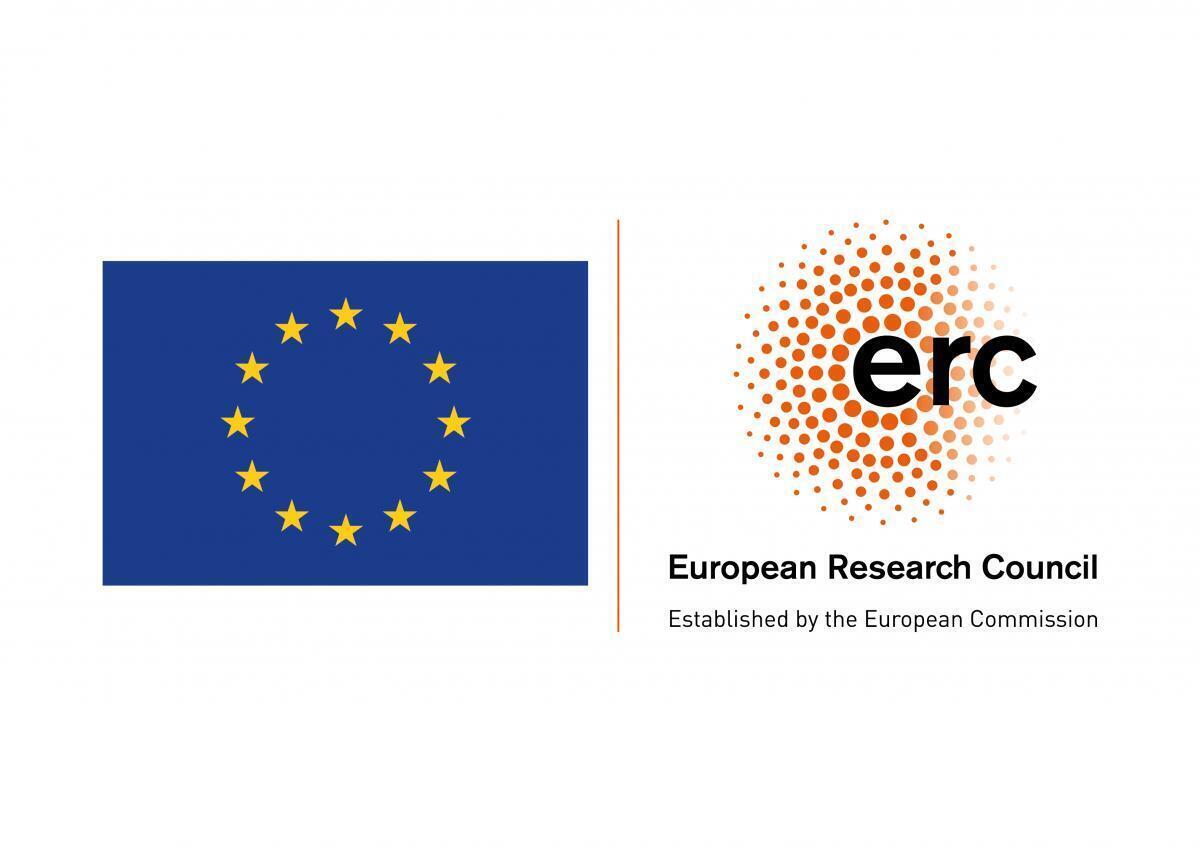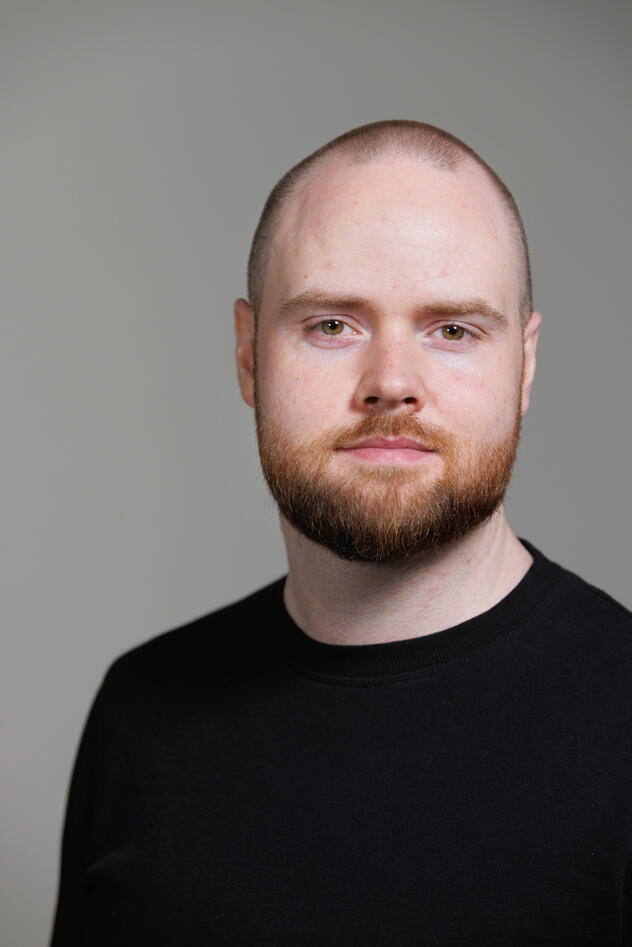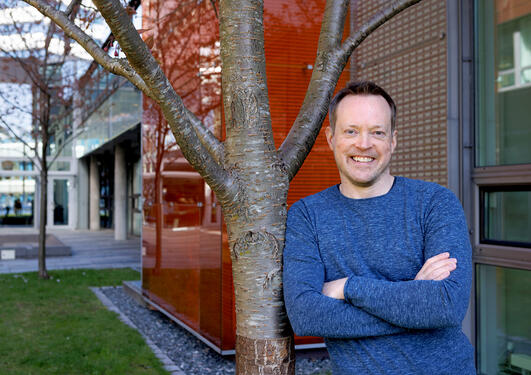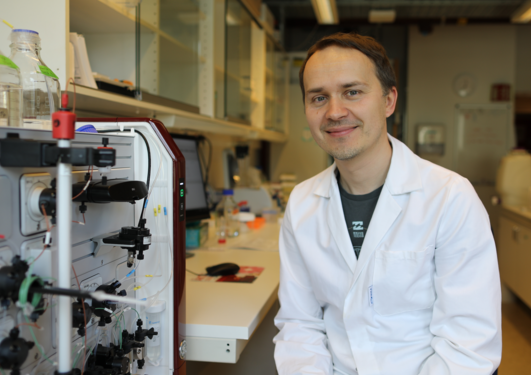James Gahan awarded ERC Starting Grant
Guest researcher and former postdoctoral fellow at the Michael Sars Centre, James Gahan, will use his European Research Council (ERC) Starting Grant to establish his own research group at the University of Galway, Ireland.

Main content
James Gahan has been awarded the prestigious ERC Starting Grant for his research proposal Deciphering the origins of cell differentiation and developmental gene regulation in animals which will provide fundamental insights into the early evolutionary origins of animals. "The ERC Starting Grant is a huge moment for my research and career and will allow me to build a team with the resources to do truly excellent science,” James said. The ERC awarded 400 Starting Grants from over 2,696 proposals, with an overall success rate 14.8%. "We, at the Michael Sars Centre, are thrilled and utterly proud of James’ achievement in winning an ERC starting grant to pursue his groundbreaking research as an independent investigator," said Centre Director Lionel Christiaen. "James’ success wonderfully illustrates the Centre’s dedication to training the next generation of leaders in broad fields of molecular, cellular, and organismal marine Life sciences, and to provide them with cutting-edge facilities and generous nurturing conditions to pursue their scientific creativity and succeed".
The ERC Starting Grant is a huge moment for my research and career and will allow me to build a team with the resources to do truly excellent science.
- James Gahan
Investigating early animal evolution.
Animals have a remarkable ability to regulate the expression of genes in precise patterns through space and time. Although the mechanisms behind this ability are well understood, how these processes evolved is unknown. James’ group will focus on the process of gene regulation in choanoflagellates, the closest living relatives of animals. “By studying this process in choanoflagellates and comparing it to animals, we will discover the changes that occurred early in animal evolution which allowed animals to form complex multicellular bodies as opposed to the simple single-celled lifestyles of their close relatives” explains James.

Choanoflagellate colony showing DNA in cyan, microtubules in grey and actin in magenta.
Switching models from Nematostella to choanoflagellates.
After a PhD at the University of Galway, James Gahan left his home country and joined former Michael Sars Group Leader Professor Fabian Rentzsch for a 5-year postdoctoral fellowship in 2017. James worked on the role of chromatin regulators in the nervous system of the sea anemone Nematostella vectensis. Despite publishing three first-author papers during this time, he decided to switch topics and investigate a new model organism. “I made this quite dangerous and somewhat brave decision to switch from Nematostella to choanoflagellates very late in my postdoc. This I am quite proud of, and I think in the end it paid off. I don’t think I would have gotten an ERC on Nematostella”, James explained. He credits the stimulating work environment at the Centre and in particular his interactions with Group Leader Pawel Burkhardt for this crucial turn in his career. “If I hadn't been exposed to Pawel and his group's work on choanoflagellates, I would never have thought about making this move,” he said. His transition to choanoflagellates took many by surprise. "James took a big risk by switching his model organism of choice mid-way through his postdoc," Pawel noted. "I have to admit, I was surprised when he did, especially as his work on cnidarians was successful and about to take off. However, it totally paid off and I am very happy that we will have another choanoflagellate lab in Europe soon."
While in Fabian's lab, James started investigating the evolution of Polycomb Repressive Complex 1 (PRC1). While looking at specific proteins belonging to PRC1 in Nematostella, he discovered that a whole family of proteins that were thought to be vertebrate-specific were present in Nematostella. Teaming up with Dr. Christine Schnitzler at the Whitney Institute in Florida, they published a study in Proceedings of the National Academy of Sciences, PNAS, on understanding the evolution of PRC1 complexes. "While looking at these proteins, I started to think more broadly about the evolution of chromatin. I discovered that there is very little information about Polycomb, or about chromatin and gene regulation in general in choanoflagellates,” he said.
James went on to receive the Sir Henry Wellcome Postdoctoral Fellowship at the University of Oxford under the supervision of Professor Rob Klose. He then spent a year at the University of California San Francisco in the laboratory of choanoflagellate genetics pioneer Dr. David Booth where he learned how to work with choanoflagellates, beginning experiments that would later form the basis of his ERC application. Following his year in the U.S., James returned to the Michael Sars Centre as a guest researcher in the Burkhardt Group.
What the ERC means for the Future

James makes a speech during the celebration of the ERC announcement at the Michael Sars Centre.
Discovering that he had been awarded an ERC Starting Grant was an emotional moment for James. "It is something that you dream of but is very difficult to get so you try not to get your hopes up. You see these people who got it, these famous scientists who you respect but you don’t – at least I don’t – think of myself in the same category as those people. So yeah it was emotional, and exciting and scary all at once,” he said. Pawel, a recipient of the ERC Consolidator Grant in 2022, spoke to the challenges of being awarded ERC funding. "The European Research Council Starting Grants are one of the most competitive grants in Europe. These highly prestigious grants allow early career scientists, who are ready to work independently and show a strong potential to become a research leader, to establish their own, first research group. However, getting one of these grants is extremely difficult," he said.
James will continue as a Guest Researcher at the Centre before taking up his new Associate Professor role in the School of Biological and Chemical Sciences and Centre for Chromosome Biology (CCB) at the University of Galway in April 2024. “It is really a scientific homecoming because I did my PhD in the CCB and this is where I first learned about gene regulation so it’s really exciting to be returning with my own group. I’m also excited to see where other people’s ideas bring me, to have people in the lab who move things in directions I didn’t expect and cannot predict,” he said.



